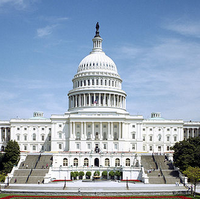The Convention on the Elimination of All Forms of Discrimination Against Women, or CEDAW, is getting its third shot at ratification after lying dormant in U.S. Senate subcommittees for the past 30 years. With the Obama administration's support and a Democratic majority in the Senate, the timing for what's known as the Women's Treaty could be right. But even in the best of circumstances, CEDAW will still be up against tough odds.
"It's well known world-wide there's a tremendous amount of obstructionism going on in the U.S., and today, regrettably, this convention is not at the top of the list in the Senate," said Sen. Arlen Specter at a hearing on CEDAW last week before the Senate Subcommittee on Human Rights and the Law.
Concerns from the conservative base about subjecting the U.S. to an international review driven by the United Nations have placed CEDAW in limbo since 1979, when the U.N. General Assembly first adopted it. Since then, 186 out of 193 U.N. member states have ratified the treaty, leaving the U.S., Sudan, Somalia, Iran and three small Pacific Island nations -- Nauru, Palau and Tonga -- as the sole hold-outs. Despite the treaty's almost-universal adoption, however, none of the countries currently implementing it has "reached substantive gender equality," said CEDAW Committee Vice Chair Zou Xiaoqiau at a U.N. headquarters press conference last month.

